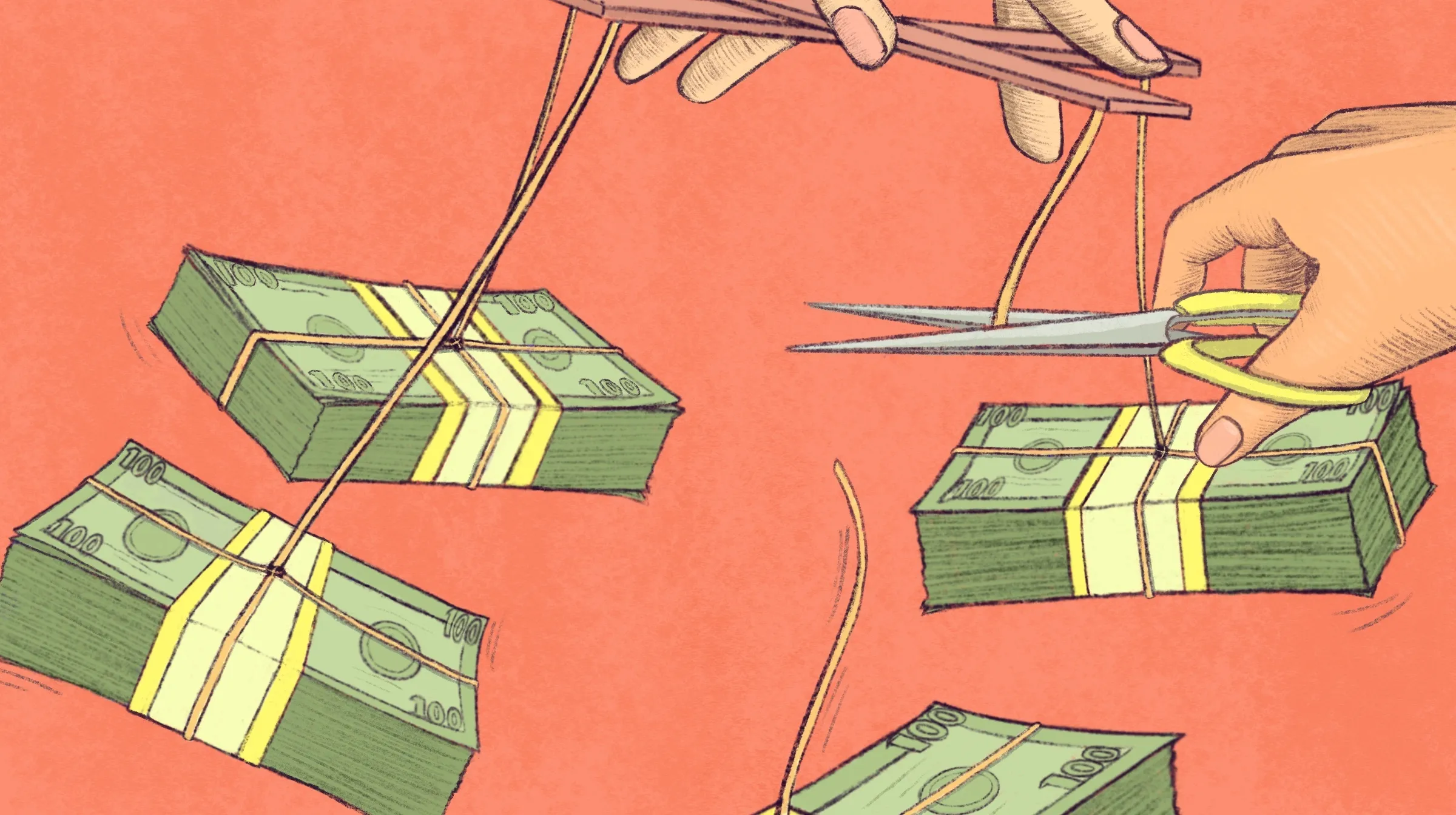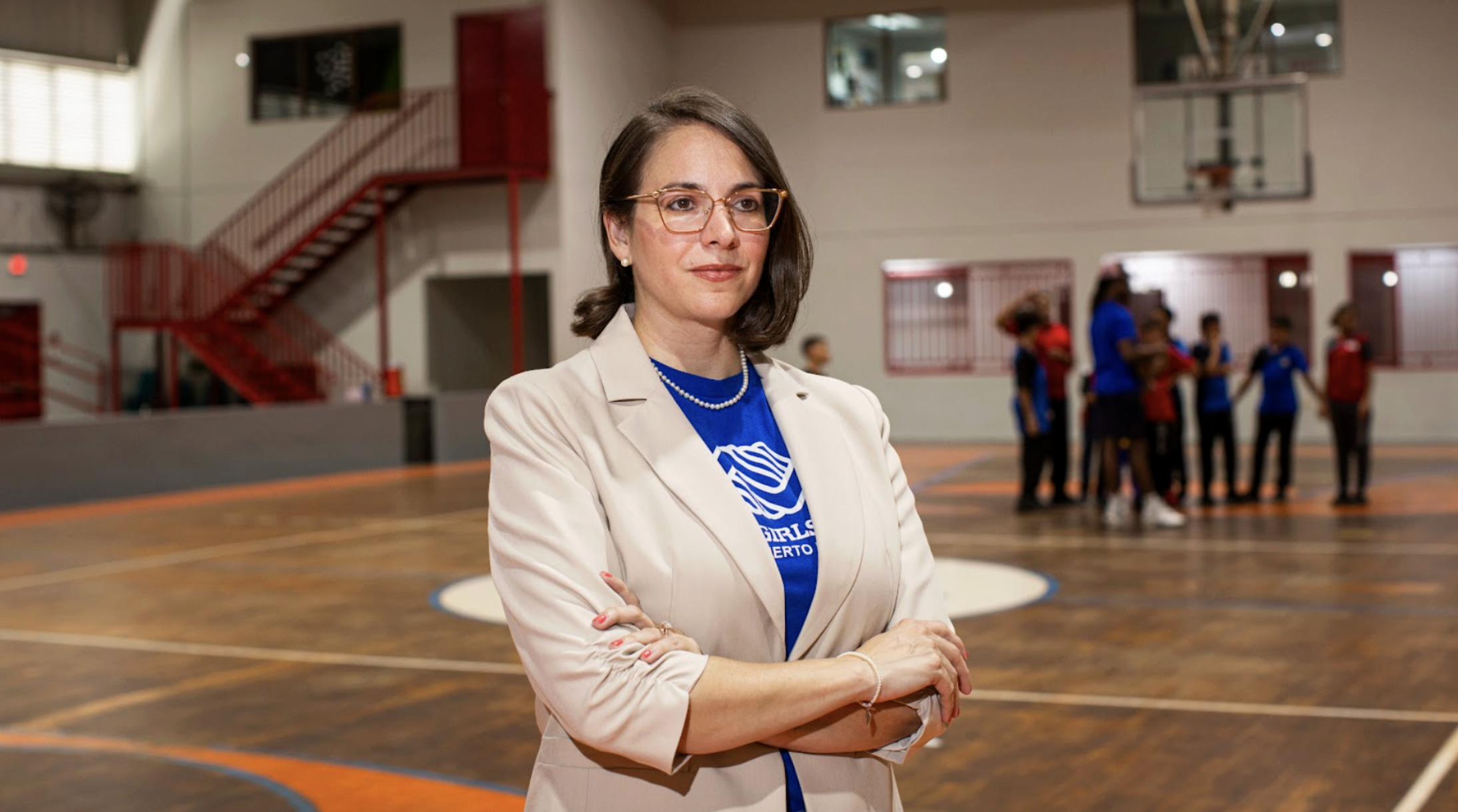Guerrilla Foundation is the rebellious teenager of European philanthropy. Many foundations avoid uncomfortable questions around power; Guerrilla Foundation, which backs activists and grassroots movements around Europe, is out to “radically and deliberately redistribute wealth” – and to have some fun with it along the way.
Until 2022, however, its grantmaking process wasn’t all that unusual. A small core team selected grantees; the founder and sole funder, German-Greek philanthropist Antonis Schwarz, attended every decision-making meeting – and had veto rights each time.
By now, the Berlin-based foundation has a bunch of other individual funders. But crucially, none of these “merry band of misfits”, as they’re described, decides who gets the money. Instead, that’s done largely by an ‘activist council’ – 12 activists from around Europe who help shape selection criteria, scout potential grantees, evaluate proposals and support the governance and strategy of the foundation itself.
Getting activists into the driving seat was a question of legitimacy. As Guerrilla’s “ship captain” Romy Kramer put it, in an online discussion hosted by the foundation on 3 July: “How can we talk about helping people to move power… if we don’t ourselves as an organization try to do the same, and live our values?” She added, pointedly: “I know not many other foundations maybe feel that way.”
Finding its own model
Guerrilla Foundation arguably had it easier than most, because Schwarz fully supported the move into participatory grantmaking (PGM). He is unusual in the world of big money. A self-described activist and vocal advocate of a wealth tax, he campaigns within Millionaires for Humanity, alongside disruptors like Marlene Engelhorn (who has also donated to Guerrilla Foundation).
In 2022, the year its PGM pilot began, Schwarz reflected on the early years in the foundation: shaped by experiences in impact investing and business school, he was “a bit paranoid” about achieving maximum results. He wielded disproportionate power over the team, even if in reality he vetoed “less than a handful” of grants over five years.
Guerrilla Foundation is of course far from the first to dive into PGM; Kraemer cited frontrunners including Red Umbrella Fund (focusing on sex worker rights) and Global Greengrants Fund (environmental movements) as sources of inspiration. But, given its Europe-wide and intersectional scope, Guerrilla needed to find its own model, she said.
So what does that model look like? Activist council members, who are recruited for a two-year mandate, meet five times a year to select grantees, distributing an annual budget of around €1.3 million in ‘action grants’ (€10,000-€20,000, with some two-year grants of €40,000). Applications for ‘reflex grants’ (up to €9,000, with a rolling deadline) are still – “for now” – coordinated by the core team to allow for a quick response.
A recent evaluation of Guerilla Foundation’s shift to PGM, led by independent consultant Rose Longhurst, found that it allows “meaningful participation”. More and better input comes from a broader mix of decision-makers, with clear benefits for the team (better alignment of values) and for the activist council themselves, who gain new perspectives of issues.
Among them is Mohammed Elnaiem, who said that the activist council works well alongside the core team, which is now organized along sociocratic principles. “We’re not just some kind of external appendage, we’re a circle within an ecosystem,” he said.
Importantly, by pitching to their peers, applicants are not having to “make [themselves] palatable to someone else’s strategy”, as in much of conventional philanthropy.
“We understand the type of grantees that come to us, because we’re like them. We’re on the outside, we’re left of field,” said Elnaiem, who is founding director of the UK’s Decolonial Centre. Traditional philanthropy is all about power and being in the right network, he added: “If you’re in, you’re in… One of the most rewarding things about being involved in the activist council is being able to get to the people who are ‘out’”.
Messy reality
There are clear financial implications of working in this way. Activist council members are paid a not insignificant fee of €75 per hour, costing the foundation around €90,000 annually, not counting staff time in managing the process.
Schwarz appears to be as big a fan as ever, though in a recent LinkedIn post he said the move to PGM can be “sometimes messy”. Kraemer also acknowledged some issues. For example, applicants who cannot apply in English “definitely” face discrimination, unless an activist council member happens to speak their language.
One potential council member was unable to continue in the role because they did not have (and did not want) a smartphone, which was required for much of the work. The workload is still a challenge: one consideration is to have separate groups involved in grantmaking and in foundation strategy, rather than asking council members to do both.
The other messy reality is that just 12 individuals can neither truly represent or nor wholly understand movements across all of Europe, and across all sectors; Guerrilla Foundation is unusual in supporting everything from disability justice, to workers’ rights, to resistance to the far right. Yet their model is drawing interest and admiration from afar, at least judging by the nonstop comments and questions from the webinar attendees, several of whom came from more conventional organizations.
Foundations often shy away from financing activism, even though they know that this is a large part of how social change happens. One way around the perceived risks of doing so, as the researchers at Social Change Lab point out, is simply to fund intermediaries – like Guerrilla Foundation.
Public support for protest is often greater than perceived. If more wealthy and influential “misfits” get on board with this thinking, it could just tip the balance.

%20(1280%20x%20720%20px)%20(31).png)








.webp)

.webp)
%20(1280%20x%20720%20px)%20(41)%202.webp)
%20(1280%20x%20720%20px)%20(38).webp)


%20(1280%20x%20720%20px).webp)











.webp)






.webp)
.gif)

.webp)


.gif)













